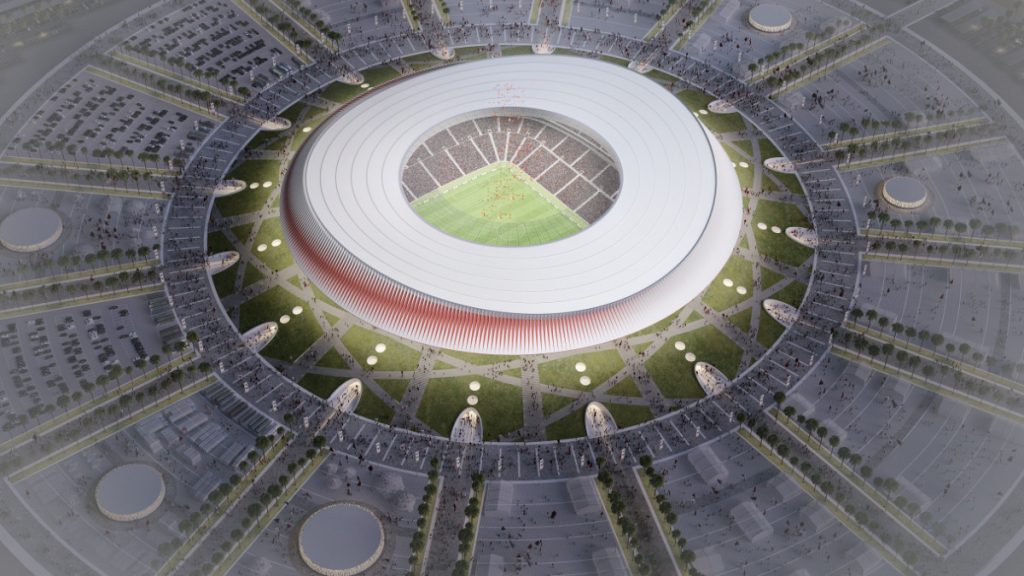Morocco, Spain, and Portugal are set to co-host the 2030 FIFA World Cup, a monumental event that will bring global attention and significant economic benefits to the region. As Morocco prepares for this big event, the country is preparing an ambitious plan to enhance its infrastructure and hospitality industry.
Expanding Hotel Capacity With UAE Collaboration
In preparation for the 2030 World Cup, Morocco plans to double its hotel capacity by adding 1.5 million new rooms. This initiative is part of a broader strategy to accommodate an estimated 26 million tourists.
The expansion was highlighted during the New Horizons event in Casablanca, where Morocco’s strategic partnerships with the UAE were prominently revealed.
Anas Guennoun, Vice President of CGEM, emphasized the significant investment required for this expansion, stating, “We have an over $50 billion investment program that is only being dedicated to the World Cup.”
He acknowledged the essential role of international partnerships, particularly with the UAE, in realizing these ambitious plans. The UAE, already Morocco’s largest Arab investor with over $30 billion in investments, is expected to play a crucial role in this expansion, providing expertise and capital.
The New Horizons event underscored the collaboration between business communities in Morocco and Dubai across various sectors, including renewable energy, digital technology, and tourism infrastructure. Multiple agreements were signed, cementing the UAE’s involvement in Morocco’s World Cup preparations.
Infrastructure Development for a Successful World Cup
Morocco is not only focusing on hospitality but also on sports infrastructure. The country plans to construct the world’s largest stadium in Ben Slimane, near Casablanca, and upgrade six existing stadiums in Agadir, Casablanca, Fez, Marrakech, Rabat, and Tangier. These upgrades are part of the preparations for the 2025 Africa Cup of Nations and the 2030 World Cup.
The new stadium in Ben Slimane is expected to be ready by 2028, with a total cost of 5 billion dirhams ($500 million), showing Morocco’s commitment to providing the best facilities for the world’s biggest football event.
Economic Benefits of Hosting the World Cup
Hosting the 2030 FIFA World Cup is set to bring substantial economic benefits to Morocco. A recent report by Valoris Securities estimates that the event could inject $1.2 billion into the Moroccan economy. If Morocco hosts one-third of the 104 matches, each match could contribute between $25 million and $37.5 million to the economy.
The anticipation of the World Cup has already spurred investment projects within the country, driven by incentives from Morocco’s new Investment Charter. This offers up to 30% of the total investment, attracting local and foreign companies eager to capitalize on the opportunities presented by the World Cup.
Morocco aims to deliver an unforgettable experience for millions of tourists and football fans. The economic benefits and enhanced global reputation will position the country as a leading destination for tourism and major events.
WE SAID THIS: Don’t Miss…Transforming Tradition: Delving Into The Renovation Of Cairo Landmarks



